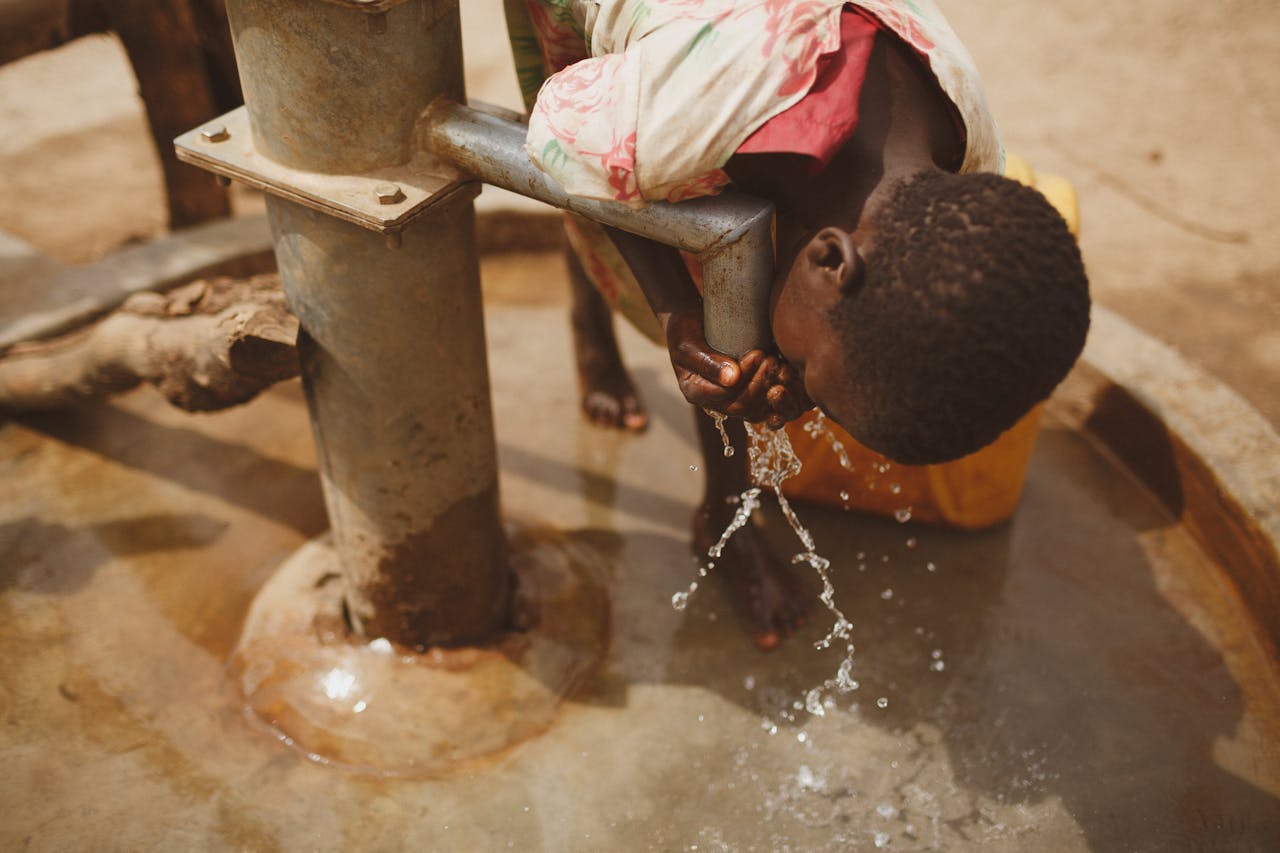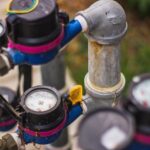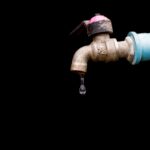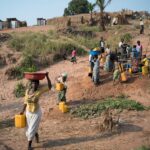The Role of Government in Solving Nigeria’s Clean Water Crisis

For millions of Nigerians, turning on the tap to find clean water flowing is still a dream and that’s exactly why the government needs to step in.
Nigeria’s water crisis isn’t news. We’ve been talking about it for years. But here’s the thing, we can’t solve this problem without our government stepping up. They’ve got the power, the money, and the responsibility to make clean water a reality for all of us.
In this article, we’re going to look at what our government – from the big bosses in Abuja down to your local council – is doing (or should be doing) to tackle our water problems. It’s not just about pointing fingers, it’s about understanding how we can push for better solutions.
The State of Our Pipes
Let’s face it – our water infrastructure is in a sorry state. In many parts of Nigeria, the pipes are older than your grandpa. Some places don’t have pipes at all.
In big cities like Lagos or Abuja, you might see water flowing more often. But even there, it’s not always clean or reliable. Head out to the villages, and the situation gets worse. Many rural folks are still fetching water from streams or relying on wells that might run dry.
The gap between North and South is real too. Northern states often have it tougher when it comes to water access. There’s the geography part, but it’s mostly about years of uneven development and investment.
No doubt, some areas have seen improvements. New boreholes are being dug, and some old systems are getting fixed up. It’s just happening slower than we’d like.
What Are Those In Power Doing About Water?
The federal government isn’t sitting idle, even if it might feel that way sometimes. They’ve got plans, big ones.
First off, there’s the National Water Policy. It’s a fancy document that lays out how Nigeria should manage its water resources. The goal? Clean water for every Nigerian by 2030. It sounds great on paper, but making it happen is the tricky part.
Then there are the agencies. The Federal Ministry of Water Resources is the big player here. They’re supposed to be coordinating all our national water efforts. Under them, you’ve got bodies like the River Basin Development Authorities, trying to manage water across different regions.
Money talks, and the federal government is putting some naira where its mouth is. They’re allocating more funds to water projects than before. But let’s be real – it’s still not enough given the size of the problem.
How Your State Fits In
While the capital city sets the big picture, it’s often the states that get things done on the ground.
Each state has its own water board or corporation. These are the folks responsible for getting water to your homes and businesses. Some states are doing better than others. In Lagos, for instance, there’s been a push to expand water access. But in many states, these boards are struggling with old equipment and not enough cash.
States are also where a lot of the actual water projects happen. They’re digging boreholes, laying pipes, and setting up treatment plants. At least, that’s what they’re supposed to be doing.
The tricky part is working with the federal government. Sometimes it’s a smooth partnership; other times, it’s like oil and water. Politics often gets in the way of progress.
Your Local Government’s Role
Now we’re getting to the grassroots. Your local government council might not have big budgets, but they play a crucial role in water management.
These are the folks closest to the communities. They’re often responsible for maintaining small water systems, like public taps or community boreholes. They’re also key in getting locals involved in water projects.
But truth be told, many local governments are struggling. They don’t have enough money or trained staff. Sometimes, they’re left out of big decisions made at the state or federal level.
Despite these challenges, some local governments are making a difference. They’re partnering with NGOs, rallying communities, and finding creative ways to improve water access.
Water Laws in Nigeria
Laws might sound boring, but they’re crucial in the water game. Nigeria has a bunch of laws and regulations about water, but knowing them and following them are two different things.
The Water Resources Act is a big one. It lays out who’s in charge of what when it comes to water. Then there’s the Environmental Impact Assessment Act, which is supposed to make sure water projects don’t mess up our environment.
Recently, there’s been talk of new water laws. Some folks in the government want to update how we manage our water resources. But it’t has stirred up a lot of debate. People are worried about who will control the water and how much it might cost.
The challenge isn’t just making laws; it’s making sure they work in real life. We’ve got plenty of rules on paper, but enforcing them is where things often fall apart.
In the end, these laws and policies are meant to make sure every Nigerian has access to clean water. But as we all know, there’s often a big gap between what the law says and what’s happening in our communities.
Government Partnerships
Teamwork does make the dream Work. Our government isn’t tackling the water crisis alone. They’re teaming up with all sorts of groups to get the job done.
First, there are the big international players. The United Nations, World Bank, and others are pumping money and expertise into our water sector.
Then there’s the private sector. The government’s trying to get businesses involved through something called Public-Private Partnerships (PPPs). The idea is to use private money and know-how to speed up water projects. Some people are excited about this, others are worried it might make water too expensive.
NGOs are in the mix too. Groups like WaterAid and our own Aqua Maya are working with the government to reach communities. They often fill in the gaps where government efforts fall short.
Funding Water Projects
Talking about funding, fixing Nigeria’s water problems isn’t cheap, and the government’s wallet isn’t bottomless.
The truth is, the government isn’t spending enough on water. Their budget for water is like trying to fill a swimming pool with a bucket – it’s just not enough.
Getting the money where it needs to go is another headache. Sometimes funds get stuck in Abuja, or they disappear along the way (we all know what that means).
It’s worth noting though, that the government is trying some new ways to raise money for water projects. They’re looking at things like special water taxes and trying to get more loans from international banks.
Innovation in Water
Our government isn’t stuck in the Stone Age. They’re trying to bring some high-tech solutions to our water problems.
There’s talk of using satellites to find underground water sources. Some states are experimenting with solar-powered boreholes that keep pumping even when NEPA takes light.
The government is also supporting research in our universities. They’re looking for homegrown solutions to our unique water challenges. It’s not just about copying what worked in other countries; it’s about finding what works for Nigeria.
Stumbling Blocks
A lot of us wonder what is holding the government back but there are obvious stumbling blocks. If solving our water crisis was easy, we’d have done it by now. The government is facing tough challenges.
Corruption is the elephant in the room. We’ve all heard stories of water project money disappearing into thin air.
Politics gets in the way too. Sometimes good water projects get shelved because they’re in the “wrong” part of the country or don’t benefit the right people.
There’s also the problem of competing priorities. Clean water is important, but so are roads, schools, and hospitals. The government is always juggling, trying to decide where to spend its limited cash.
What Has Worked and What Hasn’t
It’s not all been failures. There are some success stories we can learn from.
Take the Gurara Water Transfer Project in Niger State. It’s bringing water to hundreds of thousands of people. It wasn’t easy or cheap, but it shows what’s possible when there’s good planning and follow-through.
But for every success, there are plenty of failures. Remember the Adiyan Waterworks Phase II in Lagos? Years of delays and budget overruns. It’s a textbook case of how not to run a water project.
The lesson? Good intentions aren’t enough. We need solid planning, honest management, and consistent follow-up to make water projects work.
The Government’s Future Water Plans
So what’s next? The government has got some big plans for our water future.
They’re talking about a “Water for All” initiative, aiming to reach every Nigerian with clean water by 2030. It’s a big goal, but hey, aim for the stars, right?
There’s also talk about better managing our rivers and lakes, not just for drinking water but for agriculture and power too. It’s about seeing the big picture of how water fits into our national development.
Climate change is on the radar too. The government is starting to plan for a future where rainfall patterns might change, and some areas might get drier.
What the Government Needs to Do Better
Nobody is perfect, and our government’s water efforts definitely have room for improvement. Here’s what needs to change:
First, we need better coordination. Too often, the left hand doesn’t know what the right is doing. Federal, state, and local governments need to work together better.
Transparency is key. We need to know where every naira for water projects is going. More eyes on the money mean less chance for it to disappear.
Community involvement is crucial. The government needs to listen more to local people when planning water projects. After all, they’re the ones who’ll be using the water.
Lastly, we need a long-term view. Water projects shouldn’t just be about winning the next election. We need plans that’ll serve our children and grandchildren too.
In the end, solving Nigeria’s water crisis is a big job, and the government has a crucial role to play. There is the need for building pipes and pumps, yes but it’s more about building a system that works for all Nigerians. And that’s something worth fighting for.
Conclusion
We’ve dissected the government’s role in our water crisis, from lofty policies to muddy realities. But here’s the thing, government action is just the first drop in the bucket.
Think of Nigeria’s water situation as a massive puzzle. The government provides the frame, but we’re all responsible for filling in the pieces. Every time you fix a leaky faucet or report a burst pipe, you’re completing part of that picture.
Our stance at Aqua Maya is this – we are not here to replace the government or to be another voice shouting from the sidelines. We are puzzle solvers, gap fillers, community builders.
Imagine a Nigeria where clean water isn’t just a government promise, but a community-driven reality. That’s the future Aqua Maya is working towards, one village at a time.
So, what’s your piece of the puzzle?
Maybe it’s joining Aqua Maya’s next project. Perhaps it’s starting a water conservation club in your neighborhood. Or it could be as simple as ensuring your own water usage doesn’t make someone else’s glass run dry.
Remember, revolutions don’t always start with a bang. Sometimes, they start with a single step or in this case, a single drop. And in Nigeria’s water story, you could be that crucial drop.
Let’s turn the tide together. Because when it comes to water, we’re all in the same boat and it’s time we started rowing in the same direction.
Sources:
- https://faolex.fao.org/docs/pdf/nig158231.pdf
- https://nigeria.un.org/en/sdgs/6
- https://www.bpe.gov.ng/river-basin-development-authorities-rbdas/
- https://www.fao.org/faolex/results/details/en/c/LEX-FAOC004832/
- https://ppp.worldbank.org/public-private-partnership/overview/ppp-objectives
- https://www.hydropower-dams.com/articles/social-and-environmental-aspects-of-the-gurara-water-transfer-project-nigeria/
- https://www.webuildgroup.com/en/projects/dams-hydroelectric-plants/adiyan-waterworks-phase/






